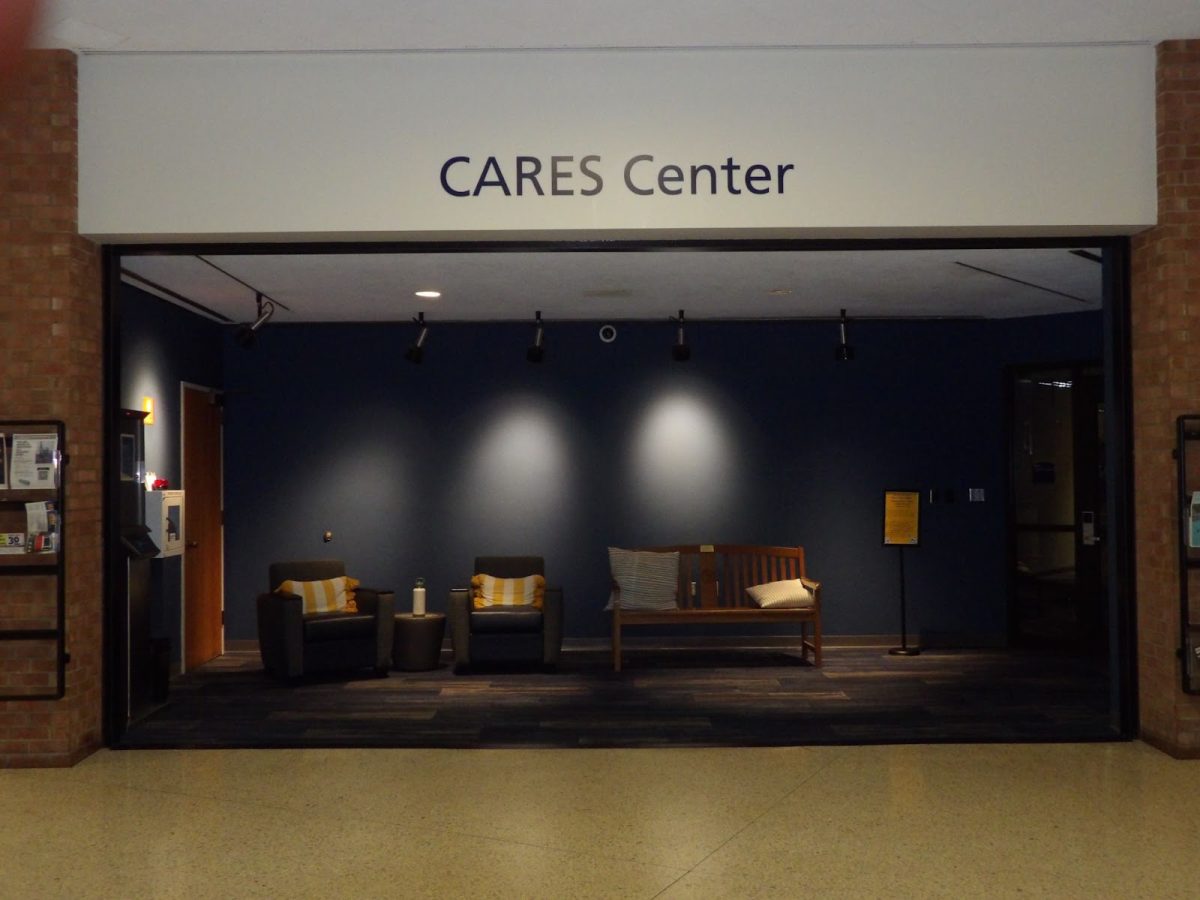The university’s CARES Center on the first floor of the Student Center has been around since April 2021, aiming to help students meet their basic needs.
Each letter in the word CARES stands for one way it can help students: The C stands for Crisis. A stands for Advocacy. R stands for Resources. E stands for Education. S stands for Success programs.
“For us, it’s not only facing insecurities; we like to use the term security,” said Josh Perkins, the assistant dean of students and director of the CARES Center. “How do we help students be financially secure? How do we help students be housing secure?”
The first step to receiving aid is knowing that the aid is available. By filling out a basic needs assistance form, the CARES Center can then go on to help students in two ways: direct and indirect help.
Direct help is provided through the center’s case workers Mike Finklestein and Chrissy Walter, the Flashes Food Pantry, which is run by Sydney Jordan. as well as fundraising to help students in need.
Indirect help is connecting students with off-campus aid, Perkins said. This could be getting students connected with an off-campus food pantry or mental health service, setting students up with SNAP/ WIC or making arrangements with Portage Metropolitan Housing Authority.
“We had a student that was unable to pay for some extended mental health care, and so we were able to step in and provide some emergency funding so the student could get off-campus mental health care,” Perkins said.
The CARES Center has made efforts to let students know what services are available by attending Flashes 101 courses, speaking at Destination Kent State, sharing information through its staff newsletter, reaching out to the Office of Global Education and through educational presentations.
Even if a student is not someone in need, they can help other students by donating to the Flashes Pantry, talking to friends about the CARES Center and joining the Peer Connecting Program launching in Fall 2024. This program will allow students to connect about how they budget, where they go for help and how to build a sense of belonging on campus.
Sometimes, it is hard for students to realize they need help, said Janda Roberts, the outreach program coordinator for the center.
“When a person is looking at their own story, it’s like it’s not that bad, especially if you hear stories worse than yours,” Roberts said. “So, you’re like, ‘I’m not going to go because it’s not that bad; I can figure it out.’ Well, the reality of it is, it’s that bad because you are experiencing it. So, because it is, come on by.”
Bristol Lily is a reporter. Contact them at [email protected].


